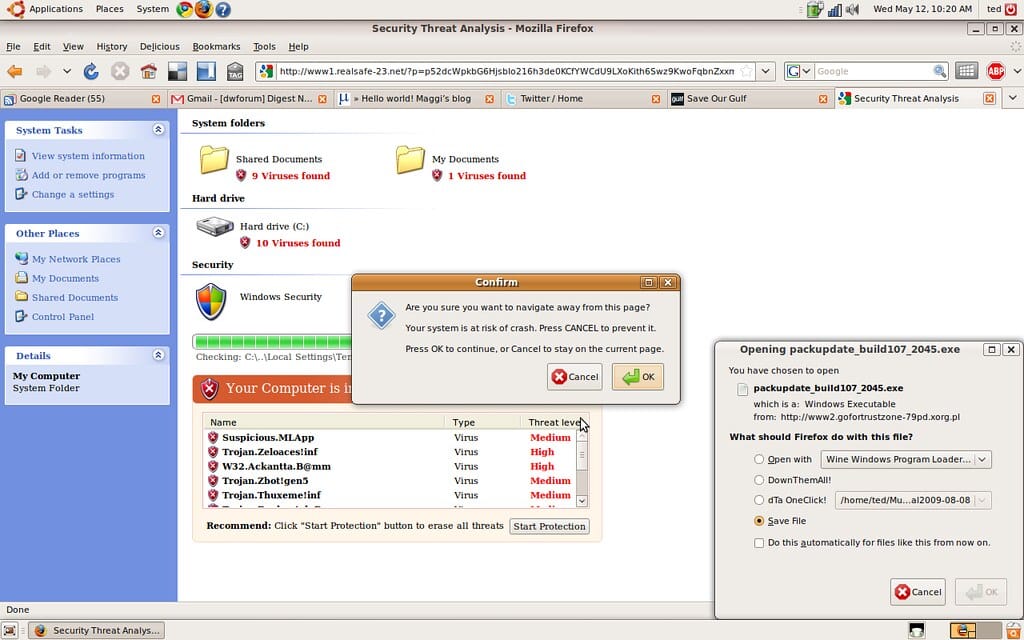Malicious Worm Infiltrates Hundreds of NPM Packages, Hits CrowdStrike in Supply Chain Attack
A sophisticated self-replicating malware worm has infected several hundred packages on the Node Package Manager (NPM) registry, including packages associated with cybersecurity giant CrowdStrike, marking one of the most significant supply chain attacks on the JavaScript ecosystem to date.
The Attack Unfolds
Security researchers discovered the malicious campaign in late 2024, revealing a coordinated effort that leveraged the interconnected nature of modern software development. The worm, designed to automatically spread through NPM's vast package ecosystem, managed to compromise legitimate packages by exploiting trust relationships between developers and their dependencies.
The attack specifically targeted high-profile packages and organizations, with CrowdStrike—ironically a company specializing in endpoint protection and cybersecurity—among the notable victims. This highlights how even security-focused organizations aren't immune to sophisticated supply chain attacks.
How the Worm Spreads
Unlike traditional malware that requires manual distribution, this self-replicating worm was engineered to automatically propagate through NPM's package management system. The malware worked by:
- Hijacking legitimate package updates: The worm inserted itself into routine package updates, making detection more difficult
- Exploiting dependency chains: By infecting popular packages with many dependents, the malware could reach hundreds of downstream projects
- Mimicking legitimate code: The malicious code was carefully crafted to blend in with normal package functionality
Security experts note that the worm's sophistication suggests it was developed by threat actors with deep knowledge of the NPM ecosystem and modern JavaScript development practices.
Impact on the Developer Ecosystem
The NPM registry serves as the backbone for millions of JavaScript projects worldwide, making this attack particularly concerning. With over 2 million packages and billions of weekly downloads, NPM's scale means that compromising even a small percentage of packages can have far-reaching consequences.
Affected packages included both widely-used open source libraries and packages associated with enterprise software. Developers who unknowingly downloaded infected packages may have inadvertently introduced malicious code into their applications, potentially creating backdoors or data exfiltration capabilities.
The CrowdStrike connection is especially significant given the company's role in protecting other organizations from cyber threats. While the full extent of the impact on CrowdStrike's systems remains under investigation, the incident serves as a stark reminder that supply chain security is a universal challenge.
Industry Response and Mitigation
NPM's security team acted swiftly once the campaign was discovered, removing hundreds of malicious packages from the registry and implementing additional scanning measures. The organization has been working closely with affected package maintainers to ensure clean versions are restored.
CrowdStrike has acknowledged the incident and stated that they are conducting a thorough investigation to determine any potential impact on their systems or customers. The company emphasized that their core security products continue to operate normally.
Security researchers recommend that developers:
- Audit their project dependencies for any recently updated packages
- Implement automated security scanning in their development pipelines
- Use package-lock files to prevent automatic updates to potentially compromised versions
- Consider using private package registries for sensitive projects
Lessons for Supply Chain Security
This incident underscores the growing threat to software supply chains, an attack vector that has gained prominence following high-profile incidents like SolarWinds and CodeCov. The interconnected nature of modern software development, while enabling rapid innovation, also creates cascading security risks.
Organizations are increasingly recognizing the need for comprehensive supply chain security strategies that go beyond traditional perimeter defenses. This includes implementing software bill of materials (SBOM) practices, continuous dependency monitoring, and zero-trust approaches to third-party code.
Moving Forward
The NPM worm attack represents a watershed moment for JavaScript ecosystem security. While the immediate threat has been contained, the incident has prompted calls for enhanced security measures across the entire software supply chain.
As software development becomes increasingly dependent on open source packages and third-party dependencies, incidents like this will likely become more common. Organizations must balance the benefits of rapid development with robust security practices, ensuring they can detect and respond to supply chain compromises before they impact critical systems.
The cybersecurity industry's collective response to this attack will shape how we approach supply chain security in the years to come.
